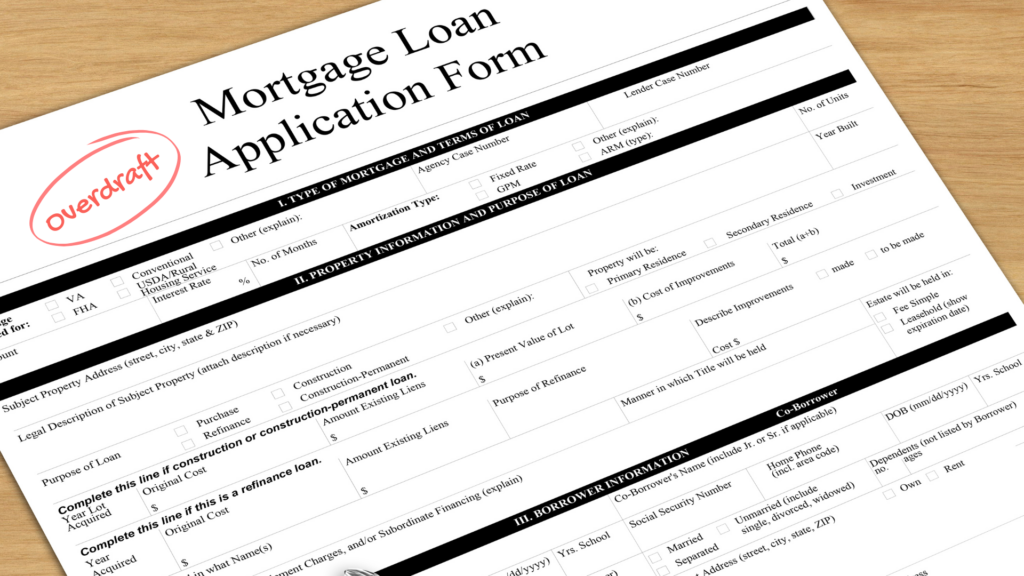How Much Mortgage Can I Get for £1,500 a Month?

Life can be expensive.
Between paying the bills, saving for the future, and wanting to enjoy life, it can be tough to find extra money for a big purchase like a home.
But don’t worry if you’re thinking, ‘I can only afford £1,500 a month for a mortgage’. There are options out there.
Let’s explore what mortgage you can get with a £1,500 monthly mortgage payment.
How Is Mortgage Affordability Calculated?
Mortgage affordability is your ability to pay back your mortgage while covering your other expenses.
The main thing that lenders look at when deciding how much you can borrow for a mortgage is your income.
They often lend you a certain amount based on how much you earn each year.
Usually, lenders will offer between 3 and 4 times your yearly salary. But some might lend you up to 5 or even 6 times your income, depending on your financial situation.
For example, if you earn £50,000 a year, you could borrow between £150,000 and £250,000, depending on the lender’s rules.
But your income isn’t the only thing that matters.
Lenders will also check your credit score, how much you have for a deposit, and any other debts you have.
To make sure you can afford the mortgage, lenders will also look at your spending. They want to see if you can comfortably pay your mortgage on top of your other bills and costs.
What Mortgage Can I Get for £1,500 a Month?
To see what you might borrow with a £1,500 monthly payment, here’s a breakdown based on different interest rates for a 25-year mortgage term.
These numbers assume a 10% deposit:
- 4% interest: You could borrow around £284,100.
- 4.5% interest: You could borrow around £269,800.
- 5% interest: You could borrow around £256,600.
- 5.5% interest: You could borrow around £244,200.
- 6% interest: You could borrow around £232,800.
These numbers show how the interest rate affects how much you can borrow. The lower the interest rate, the more you can borrow with the same monthly payment.
Here’s a table to show varying payments and 10% deposit, 25-year term:
| Payment Per Month | Interest Rate | How Much You Can Borrow |
|---|---|---|
| £1,400 | 3.50% | £279,651 |
| £1,400 | 4.00% | £265,233 |
| £1,400 | 4.50% | £251,874 |
| £1,400 | 5.00% | £239,484 |
| £1,400 | 5.50% | £227,981 |
| £1,400 | 6.00% | £217,290 |
| Payment Per Month | Interest Rate | How Much You Can Borrow |
|---|---|---|
| £1,600 | 3.50% | £319,601 |
| £1,600 | 4.00% | £303,124 |
| £1,600 | 4.50% | £287,857 |
| £1,600 | 5.00% | £273,696 |
| £1,600 | 5.50% | £260,549 |
| £1,600 | 6.00% | £248,331 |
| Payment Per Month | Interest Rate | How Much You Can Borrow |
|---|---|---|
| £1,700 | 3.50% | £339,577 |
| £1,700 | 4.00% | £322,069 |
| £1,700 | 4.50% | £305,848 |
| £1,700 | 5.00% | £290,802 |
| £1,700 | 5.50% | £276,834 |
| £1,700 | 6.00% | £263,852 |
Interest rates can change, so check with your lender or broker for the latest numbers.
You can also use the mortgage calculator to see how much you can borrow based on factors like loan amount, interest rate, and mortgage term.
What Factors Impact Your Mortgage Affordability?
Beyond your income, there are other things that lenders look at to decide how much you can borrow for a mortgage.
- Your Spending and Debts. Lenders check your spending habits and debts. If you have a lot of debt, you might be able to borrow less.
- Job Security. Lenders prefer people with a steady job history. If you’ve been in the same job for a while, especially a permanent one, you’re more likely to get a good deal. Self-employed people or those on contracts might find it tougher to borrow.
- Your Age. Younger borrowers often get longer mortgage terms, which can make monthly payments easier. As you get older, your options might be more limited.
- Your Credit Score. A good credit score can get you better interest rates. If your score isn’t great, try to improve it before applying.
- Your Deposit. A bigger deposit usually means better interest rates and the ability to borrow more.
- The Property. The type of property you want can also affect things. For example, houses that need a lot of work or are in unusual locations might be harder to get a mortgage for.
- Profession. Those in stable, high-income roles like doctors, engineers, or senior managers may be viewed more favourably by lenders, potentially leading to better offers.
What Type of Mortgage Can You Get?
The type of mortgage you can get depends on your finances and the home you want to buy.
With a monthly budget of £1,500, here are some options:
Repayment Mortgage
This is the most common type. You pay back both the money you borrowed and the interest over a set period. In the end, the house is yours.
Interest-Only Mortgage
You only pay the interest each month. This keeps your payments lower, but you still owe the full amount at the end. You’ll need a plan to pay this off, like selling the house or using savings.
Fixed-Rate Mortgage
Your interest rate stays the same for a set period, usually two to five years. Your monthly payments won’t change during that time.
Variable-Rate Mortgage
Your interest rate can go up or down. This means your monthly payments could change too. It can be riskier, but you might pay less if interest rates fall.
Remember, the best mortgage for you depends on your personal situation. It’s a good idea to talk to a mortgage advisor to find the right one.
How Can a Mortgage Broker Help?
Getting a mortgage can be tricky, but a mortgage broker can make it much simpler. With their help, you can:
- Save time and stress as they search the entire mortgage market, handle the paperwork, and negotiate for you.
- Access special mortgage deals that could save you more money.
- Get expert advice on improving your finances and making the best home-buying choices.
- Feel confident knowing everything is taken care of, and you’re getting the best deal.
In short, a good mortgage broker can take the hassle out of getting a mortgage.
Key Takeaways
- Income, credit score, deposit size, spending habits, and job stability all affect how much you can borrow for a mortgage.
- With a £1,500 monthly budget, you can borrow between £232,800 and £284,100, depending on the interest rate.
- Lower interest rates allow you to borrow more, so securing the best rate is crucial.
- A larger deposit, a steady job, and a good credit score can help you get a better mortgage deal.
The Bottom Line: What’s Next?
The first thing you should do is figure out how much you can afford to borrow. An online mortgage affordability calculator can give you a rough idea.
Having a monthly budget of £1,500 opens up lots of options. But it’s important to choose a mortgage you can comfortably afford in the long run.
To improve your chances of getting a good mortgage deal, focus on boosting your credit score and saving a bigger deposit.
After that, consider chatting with a mortgage broker. They’re experts who can provide tailored advice and help you find the right mortgage.
Want to save time and money? Contact us. We can put you in touch with a mortgage expert for free.
Get Matched With Your Dream Mortgage Advisor...

Frequently asked questions
Can I get a mortgage with £1,500 a month budget?
Yes, with a £1,500 monthly budget, you can potentially borrow between £233,000 and £284,000, depending on the interest rate and term length. However, your exact borrowing capacity will depend on your income, credit score, deposit size, and other factors.




